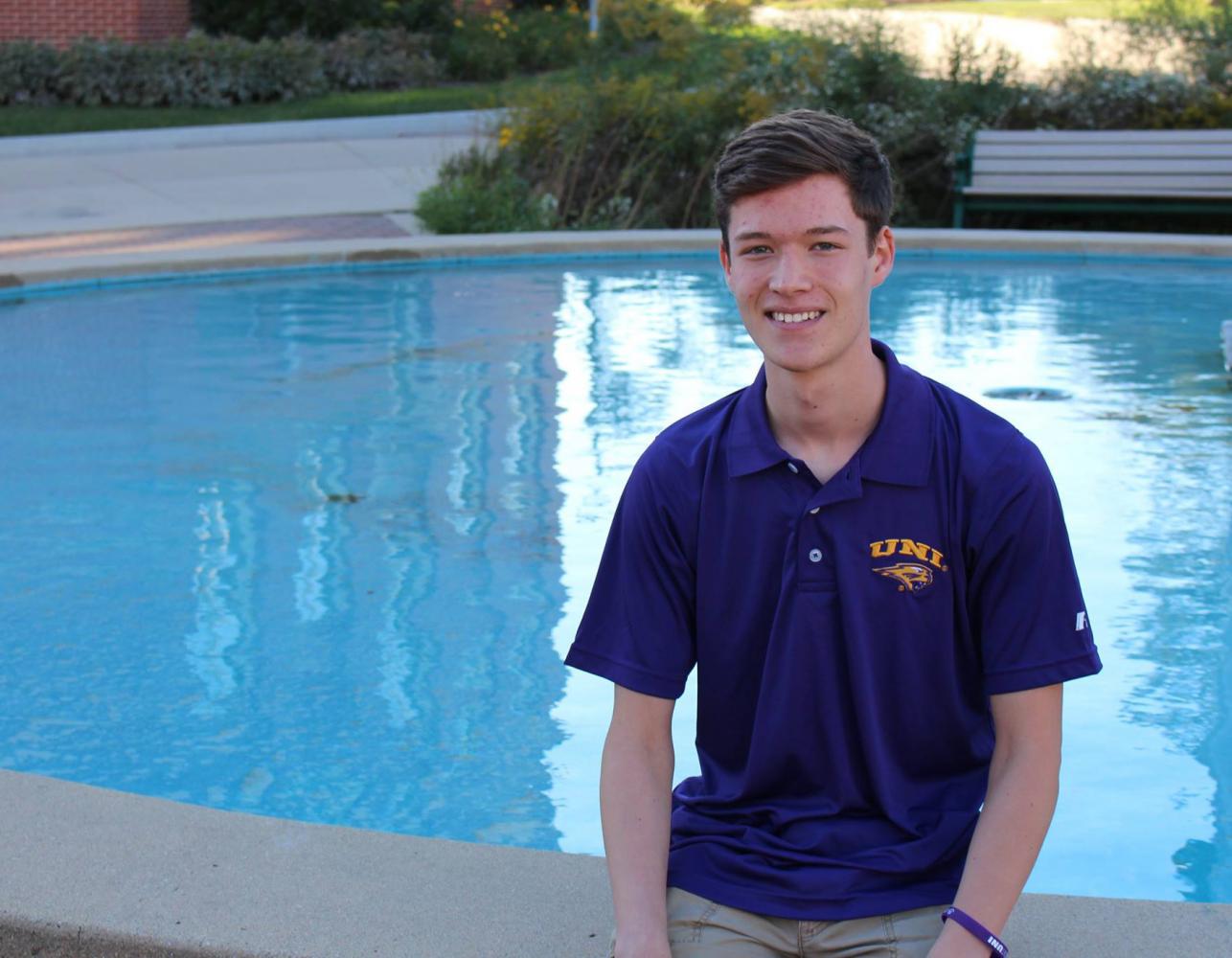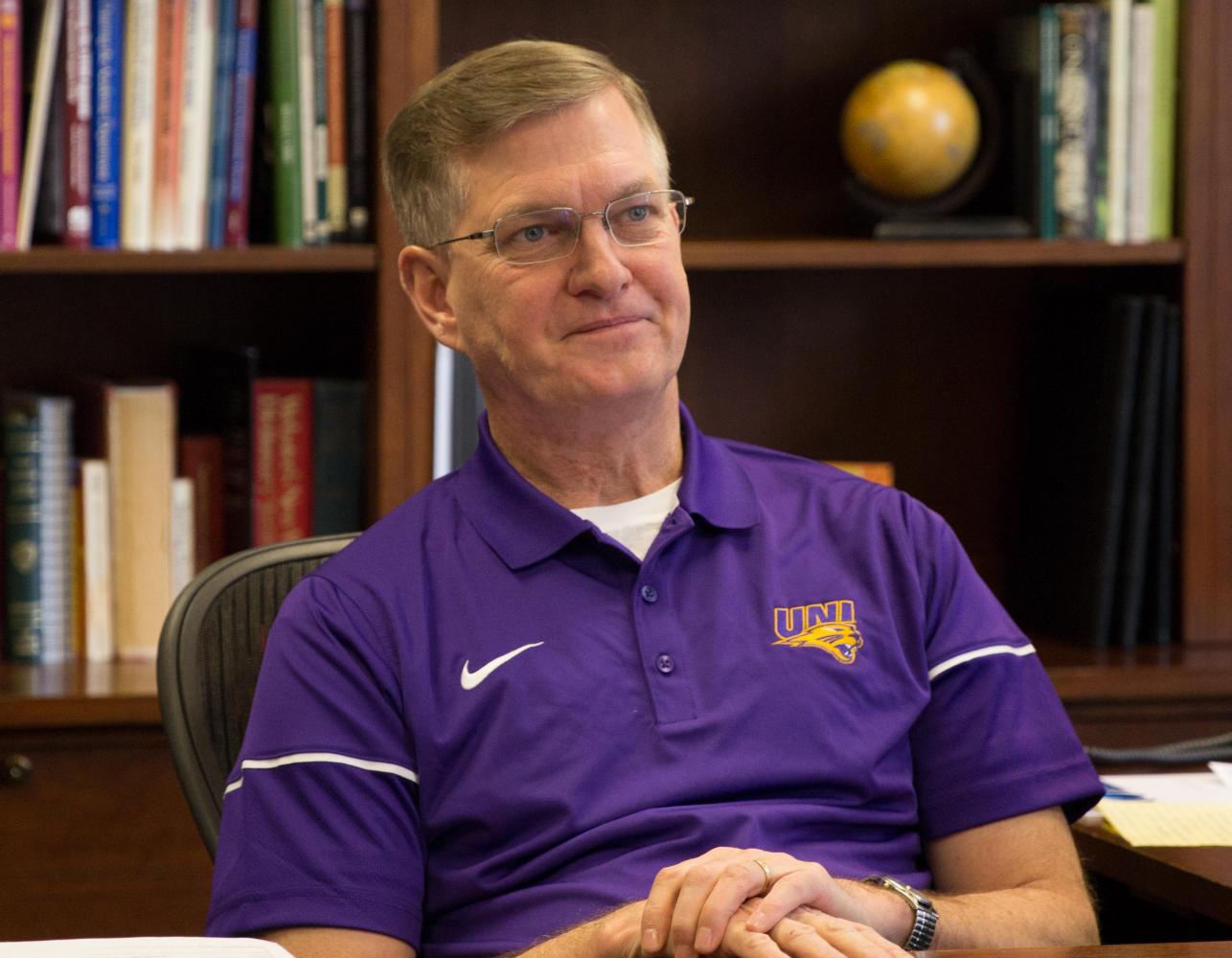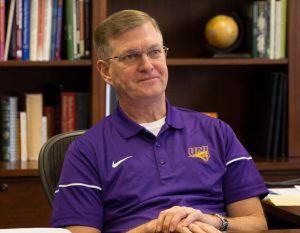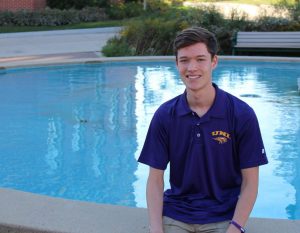Tuition Task Force devises tuition plans
Sep 11, 2017
With the start of a new school year comes many changes, and this year, one of these changes was an increase in the cost of tuition at UNI. On Aug. 7, a committee known as the Tuition Task Force met at UNI to discuss this measure, which came as a result of state budget cuts to post-secondary education funding.
“The Board encourages anyone to provide feedback at any time,” said Josh Lehman, a spokesperson from the Board of Regents. “The Tuition Task Force is a temporary committee to have the public discussion about tuition.”
The committee is made up of members of the Board of Regents, and the meeting served as a public forum for administrators to propose tuition plans for the next four academic years.
According to UNI President Mark Nook, some members of Northern Iowa Student Government (NISG) and other student organizations received a preliminary viewing of the presentation beforehand in order to offer input from a student perspective, though there was little student representation at the meeting itself.
“It was mainly made up of administration officials from the university, some elected officials and one or two faculty,” said Cade Olmstead, a sophomore public administration major who attended the meeting. “I was the only student.”
Olmstead also serves as the UNI student liaison to the Cedar Falls city council.
The presentation stated that if state appropriations for education keep up with inflation, tuition will increase by 3.9 percent in the 2018-2019 school year, 2.7 percent in 2019-2020 and 1.75 percent in 2020-2022.
Two other plans, based on whether state funding stays flat or is cut further, require higher percentage increases in student tuition. The three plans are based on university statistics from the past 10 academic years.
“We said, let’s keep our budget increase from [2008 to 2022] at no more than the consumer price index, so it inflates at the same rate as the things people buy,” Nook said. “And if we can get the state to simply increase theirs by the CPI each year, which is averaging about 1.75 percent over the last few years, then the increases to students will be manageable.”
One initiative suggested that in order to draw in more revenue at UNI, the university should increase out-of-state enrollment, since half of the total cost of attendance for in-state students is covered by state funds.
“In-state undergraduates represent 90 percent of our enrollment, and it is also the part that is most tied to fluctuations with the state appropriation,” Nook said. “As the revenue coming from the state declines, it’s more important that we find a way to bring in students who can pay that full cost to keep the high quality of education going.”
Also discussed at the meeting was the use of financial literacy programs.
Some representatives at the meeting praised them for their ability to prepare students for budgeting their money and understanding how student loans work, but student opinion on these programs was more complex.
“When tuition and interest rates on loans continue to go up and up and up, there comes a point where it’s unmanageable for you as a student,” Olmstead said. “I can know how to budget my money as best I can, but if the amount of money I’m having to spend on tuition and my student loans continues to skyrocket, then it’s out of my control to a degree.”
The discussion about tuition plans became relevant earlier this year, when Iowa legislature cut millions of dollars of funding for Iowa’s public universities: UNI received 3.2 percent less funding from the state compared to last year, as stated by The Gazette.
In order to make up for these funds, the Iowa Board of Regents worked with UNI administrators on the decision to increase tuition for the 2016-2017 school year by $216.
According to Lehman, the Tuition Task Force meeting was held over the summer since the plans discussed at the meeting are scheduled to be presented to the board at their meeting on Sept. 6 and 7.
Tuition decisions will then be made in later meetings, possibly in November or December.
“I’d rather it didn’t increase, because it’s already hard to pay,” said Jessica Gard, a sophomore majoring in elementary education.
Gard expressed interest in staying informed on future changes to the cost of attendance at UNI.
This year, NISG formed a new task force known as the Legislative Liaison Team, where students will collaborate with Iowa legislators on discussions about similar future issues. Olmstead cited this as one possible way to bring student voices into the conversation on tuition, stressing the importance of speaking up and increasing awareness on tuition hikes.
“I think any sort of change on this issue is really going to have to come from the students,” Olmstead said. “We can organize [and] we can take coordinated action together to really highlight this issue and push the debate.”
Similar Tuition Task Force meetings occurred later in August at both Iowa State University and the University of Iowa. Tuition estimates from the meeting, as well as video of the event, are available on the Board of Regents website.











